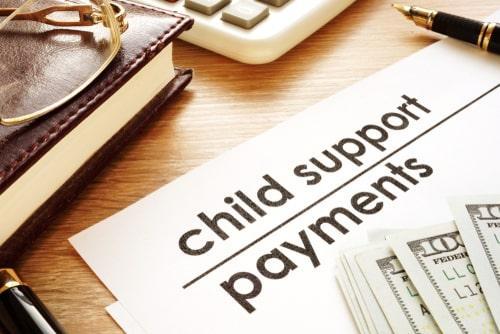Recent Blog Posts
What Are the Benefits of a Postnuptial Agreement for Illinois Spouses?
Many people are familiar with a prenuptial agreement as a way for couples entering marriage to keep certain assets separate. A postnuptial agreement is less well known, but if a married couple did not sign a prenuptial agreement, a postnuptial agreement could be an option to protect significant premarital wealth or business venture, or to protect one spouse from the other’s debt. It can be created at any time after the start of the marriage, in both good times and in bad. A postnuptial agreement should be something you mutually agree on. Like a prenuptial agreement, it is best to work with an attorney before signing any postnuptial agreement.
What Is Protected in an Illinois Postnuptial Agreement?
Postnuptial agreements can define each spouse’s financial rights and responsibilties, including property ownership, financial responsibilities, spousal maintenance obligations, and life insurance considerations. A postnuptial agreement may be useful if one spouse begins a new business venture during marriage and wants to insulate the other from any business debt incurred or doesn’t want to put the couple’s marital assets at risk if the business were to fail. It can also be used by couples who are not ready to divorce but want to safeguard certain assets; usually ones they individually brought into the marriage.
When Can Spousal Support Be Modified After a Divorce?
 Getting a divorce can lead to significant financial difficulties for both parties. In addition to addressing the costs of the divorce process itself, each spouse will need to make adjustments as they shift away from combining their incomes and expenses and establish new living arrangements where they will each use their separate incomes to cover their ongoing costs. In some cases, spousal support (which is known as spousal maintenance in Illinois) may be needed to ensure that a spouse will be able to support themselves. While this form of support is not a factor in every divorce, it may be appropriate in situations where one spouse earns a much higher income or when a person is a stay-at-home parent.
Getting a divorce can lead to significant financial difficulties for both parties. In addition to addressing the costs of the divorce process itself, each spouse will need to make adjustments as they shift away from combining their incomes and expenses and establish new living arrangements where they will each use their separate incomes to cover their ongoing costs. In some cases, spousal support (which is known as spousal maintenance in Illinois) may be needed to ensure that a spouse will be able to support themselves. While this form of support is not a factor in every divorce, it may be appropriate in situations where one spouse earns a much higher income or when a person is a stay-at-home parent.
While spousal support may be awarded based on the parties’ circumstances at the time of their divorce, these circumstances may change in the future. When a person experiences changes in their life that may affect spousal maintenance payments, they will need to understand the steps that they can take to request a modification of the court’s orders.
Is the Right of First Refusal Required in an Illinois Parenting Plan?
 When addressing issues related to child custody, parents will need to consider multiple different factors. While matters related to children will be a key consideration for parents who are going through a divorce, unmarried couples may also need to determine how they will handle child-related issues in the event of a breakup or any other situation where a child’s parents are not living together as partners. Decisions involving child custody will be set down in a legally-binding document known as a parenting plan or parenting agreement. While much of the focus of a parenting plan will be on how parents will divide parental responsibilities (legal custody) and parenting time (physical custody or visitation), the agreement may also address a variety of other related issues. One important issue that parents may want to include in their parenting plan is the right of first refusal.
When addressing issues related to child custody, parents will need to consider multiple different factors. While matters related to children will be a key consideration for parents who are going through a divorce, unmarried couples may also need to determine how they will handle child-related issues in the event of a breakup or any other situation where a child’s parents are not living together as partners. Decisions involving child custody will be set down in a legally-binding document known as a parenting plan or parenting agreement. While much of the focus of a parenting plan will be on how parents will divide parental responsibilities (legal custody) and parenting time (physical custody or visitation), the agreement may also address a variety of other related issues. One important issue that parents may want to include in their parenting plan is the right of first refusal.
4 Things to Consider When Addressing Parenting Time in a Family Law Case
 Issues related to children can be difficult to resolve in family law cases, including situations where married couples choose to get a divorce or where unmarried parents will be ending their relationship. Child custody cases will typically address two separate issues. While the allocation of parental responsibilities (sometimes referred to as “legal custody”) covers parents’ rights to make decisions about how their children will be raised, parenting time (also known as “physical custody”) will address where children will live and whether they will spend most of their time with one parent while having visitation time with the other parent. When creating a parenting plan or joint parenting agreement, parents will need to make sure to consider a number of issues that will help them avoid confusion, protect their parental rights, and provide for their children’s best interests.
Issues related to children can be difficult to resolve in family law cases, including situations where married couples choose to get a divorce or where unmarried parents will be ending their relationship. Child custody cases will typically address two separate issues. While the allocation of parental responsibilities (sometimes referred to as “legal custody”) covers parents’ rights to make decisions about how their children will be raised, parenting time (also known as “physical custody”) will address where children will live and whether they will spend most of their time with one parent while having visitation time with the other parent. When creating a parenting plan or joint parenting agreement, parents will need to make sure to consider a number of issues that will help them avoid confusion, protect their parental rights, and provide for their children’s best interests.
When Can Cryptocurrency Be a Factor in Divorce Proceedings?
 Getting a divorce will involve a variety of complex financial issues. During the property division process, a couple will need to evaluate all of their assets and debts and determine how they will be allocated between the spouses. While the physical items a couple owns will be a big part of this process, ownership of financial assets will also need to be addressed. In recent years, cryptocurrencies such as Bitcoin have become an issue that is more and more common in divorce cases, and spouses who own these types of assets will need to understand the role that they may play as they divide their marital property.
Getting a divorce will involve a variety of complex financial issues. During the property division process, a couple will need to evaluate all of their assets and debts and determine how they will be allocated between the spouses. While the physical items a couple owns will be a big part of this process, ownership of financial assets will also need to be addressed. In recent years, cryptocurrencies such as Bitcoin have become an issue that is more and more common in divorce cases, and spouses who own these types of assets will need to understand the role that they may play as they divide their marital property.
Cryptocurrency and Hidden Assets
While married couples are required to fully disclose all of the assets they own during the divorce process, there are many cases where spouses attempt to hide certain assets so that they will not have to share them. Cryptocurrency is becoming an increasingly common method of hiding assets. Transactions involving virtual currencies can be difficult to track since they are completed using private online accounts. Because of this, a person may attempt to convert money or other assets into cryptocurrency and transfer ownership of these assets to other parties or to foreign accounts in hopes that their spouse will not be aware of what they are doing.
How Can LGBTQ Parents Protect Their Rights to Child Custody?
 As American and global culture has changed in recent years, more and more people are recognizing that families come in many different forms. In many cases, same-sex, transgender, and non-binary parents play the same role as those in “traditional” opposite-sex couples, including working together to raise children. Because the U.S. Supreme Court has recognized marriage equality, LGBTQ couples have the right to be legally married, and they also have the right to terminate a marriage through divorce. However, if a couple has children, they may encounter some unique concerns as they address issues related to child custody, and in these cases, a parent may need to work with an attorney to make sure their parental rights will be protected.
As American and global culture has changed in recent years, more and more people are recognizing that families come in many different forms. In many cases, same-sex, transgender, and non-binary parents play the same role as those in “traditional” opposite-sex couples, including working together to raise children. Because the U.S. Supreme Court has recognized marriage equality, LGBTQ couples have the right to be legally married, and they also have the right to terminate a marriage through divorce. However, if a couple has children, they may encounter some unique concerns as they address issues related to child custody, and in these cases, a parent may need to work with an attorney to make sure their parental rights will be protected.
Legal Parentage in LGBTQ Families
For some couples, the question of paternity may come into play during legal proceedings that address child custody. If one partner is a child’s biological parent, the other partner may be concerned about whether they are also considered the child’s legal parent. According to Illinois’ paternity laws, if a person gives birth to a child, that person’s spouse will be presumed to be the child’s legal parent. This is true regardless of the gender of the biological parent’s spouse. A person who was formerly married to the biological parent may also be presumed to be the child’s parent if the couple’s marriage ended within 300 days before the child was born.
How Is Child Support Calculated if a Parent Has Multiple Families?
 In cases where married parents get divorced or an unmarried couple with children is no longer together, child support is often necessary to ensure that the couple’s children will have the necessary financial resources. Determining how to calculate child support can sometimes be a complex process, and if either parent has children from another relationship, the parents may be unsure about how this will factor into the calculations. By understanding how Illinois law addresses these situations, parents can make sure child support orders will provide for their children’s needs while ensuring that they will be able to support themselves.
In cases where married parents get divorced or an unmarried couple with children is no longer together, child support is often necessary to ensure that the couple’s children will have the necessary financial resources. Determining how to calculate child support can sometimes be a complex process, and if either parent has children from another relationship, the parents may be unsure about how this will factor into the calculations. By understanding how Illinois law addresses these situations, parents can make sure child support orders will provide for their children’s needs while ensuring that they will be able to support themselves.
Child Support and Multi-Family Adjustments
Since 2017, Illinois has used what is known as an “income shares” method to calculate child support obligations. Under this method, the income earned by both parents is added together, and a “basic child support obligation” is determined based on their combined income and the number of children they share. The basic obligation is then divided between the parents based on each parent’s “percentage share” of their combined income. That is, if one parent earns 65 of the combined income, they will be responsible for 65 percent of the basic child support obligation. The parent who does not have primary physical custody of the couple’s children will typically pay their portion of the child support obligation to the parent who has the majority of the parenting time.
How Does a Divorce in Illinois Change If I Am Unemployed?
 In a perfect world, all divorcing spouses would be financially stable and able to exit their marriages with comfort and ease. In real life, unfortunately, this is not always possible. Challenges finding suitable employment, disabilities, and transportation issues can all make finding and keeping a good job difficult. Individuals who are unemployed can still get divorced in Illinois, but it helps to be aware of how unemployment may affect the divorce process.
In a perfect world, all divorcing spouses would be financially stable and able to exit their marriages with comfort and ease. In real life, unfortunately, this is not always possible. Challenges finding suitable employment, disabilities, and transportation issues can all make finding and keeping a good job difficult. Individuals who are unemployed can still get divorced in Illinois, but it helps to be aware of how unemployment may affect the divorce process.
Are You Voluntarily or Involuntarily Unemployed?
If you have been laid off, furloughed, or fired but are trying to find a job, you will probably be considered involuntarily unemployed. But if you choose to be unemployed, any financial obligations you may have that could factor into a divorce will be handled considering the income you would likely be earning if you had a job. One exception to this is if you are voluntarily unemployed because you are raising children while your spouse works.
Are You Afraid Your Child’s Other Parent’s Mental Health Is Endangering Your Children?
 As research about mental health and effective treatment options continue to develop, mental illness has become much better understood and far less stigmatized. However, an important part of living well with mental illness is managing it properly. When a parent has a mental illness that is not addressed, he or she may be unable to care for their children. In serious situations, a parent with mental illness can even pose a risk to a child’s health and well-being. If you share parental responsibilities in Illinois and have seen your child’s other parent act in ways that are cause for concern, an experienced attorney may be able to help you make any necessary changes to parenting time or parental responsibilities.
As research about mental health and effective treatment options continue to develop, mental illness has become much better understood and far less stigmatized. However, an important part of living well with mental illness is managing it properly. When a parent has a mental illness that is not addressed, he or she may be unable to care for their children. In serious situations, a parent with mental illness can even pose a risk to a child’s health and well-being. If you share parental responsibilities in Illinois and have seen your child’s other parent act in ways that are cause for concern, an experienced attorney may be able to help you make any necessary changes to parenting time or parental responsibilities.
A Parent’s Mental Health Can Impact a Child’s Mental and Physical Health
Children who are mentally healthy in childhood reach important milestones in their emotional development. Independence, self-soothing, confidence, and other important social skills allow children to successfully navigate life’s tough situations. Mentally healthy children also tend to be happier and function better at home and in school.
Can I Petition to Modify My Illinois Parenting Plan if It Is Unfair?
 An important part of any divorce involving children is a parenting plan. Parenting plans are part of the final divorce decree and, as such, are legally binding. They cannot be modified without court approval and parents who fail to abide by the terms of their parenting plan can find themselves facing court sanctions and loss of parental privileges. Sometimes, however, life changes, and under certain circumstances, parents can successfully petition an Illinois court to change the parenting plan to an arrangement that makes more sense for their family. If you want to petition for a modification of your parenting plan, here are a few things to know.
An important part of any divorce involving children is a parenting plan. Parenting plans are part of the final divorce decree and, as such, are legally binding. They cannot be modified without court approval and parents who fail to abide by the terms of their parenting plan can find themselves facing court sanctions and loss of parental privileges. Sometimes, however, life changes, and under certain circumstances, parents can successfully petition an Illinois court to change the parenting plan to an arrangement that makes more sense for their family. If you want to petition for a modification of your parenting plan, here are a few things to know.
When Can a Parenting Plan Be Modified in Illinois?
It is important to note that parents cannot modify the allocation of parental responsibilities (custody or important decision-making authority) simply because they do not like the plan’s contents or believe the arrangement is unfair. Many parents feel upset when they first get divorced because they are dissatisfied with the arrangements of the divorce decree. However, whether an arrangement is truly unfair is neither here nor there as far as Illinois courts are concerned; to petition for a modification, parents must wait two years after the divorce is finalized. The only exception to this is if keeping the current plan would put a child at risk of physical or emotional harm.








